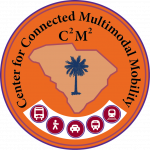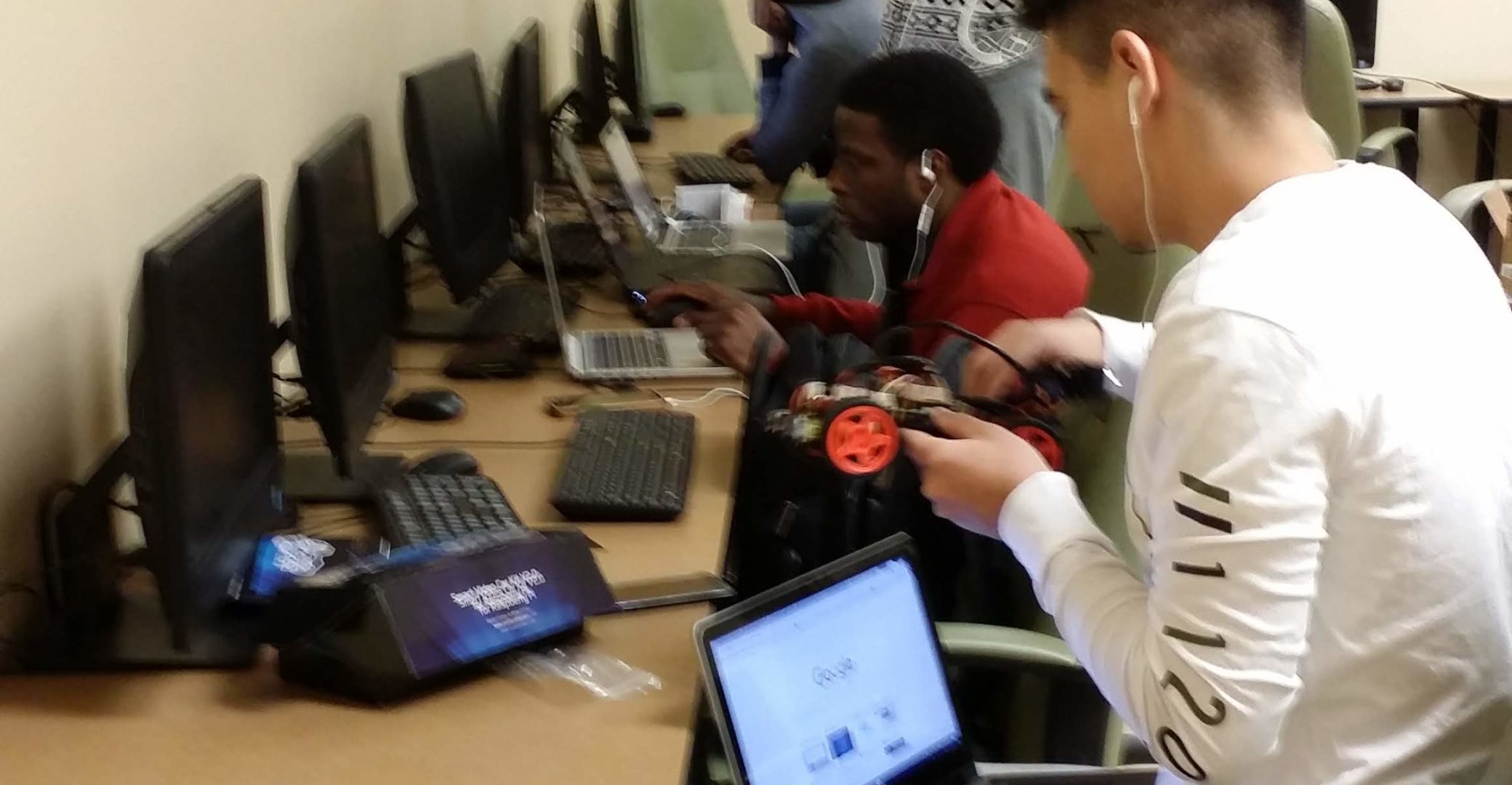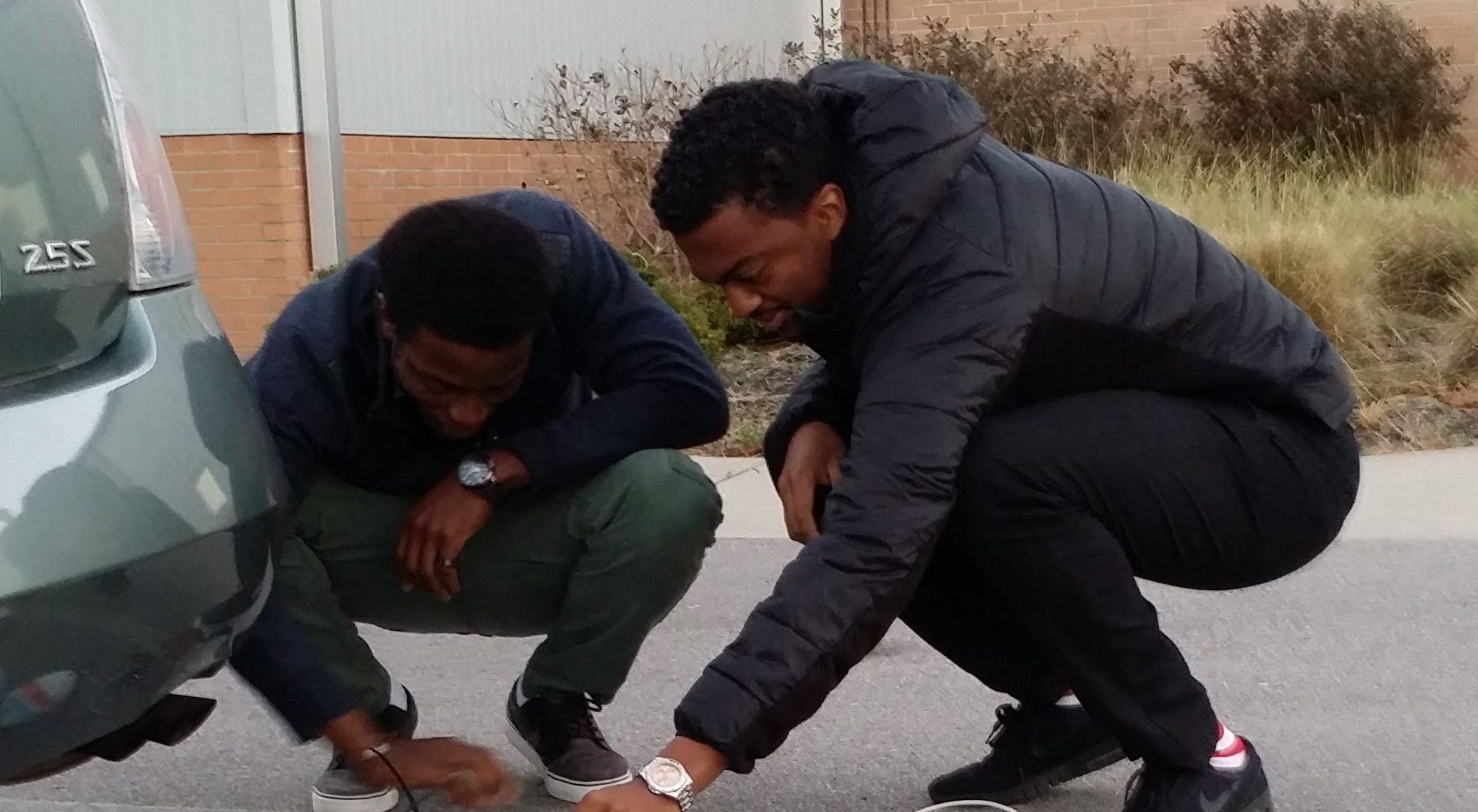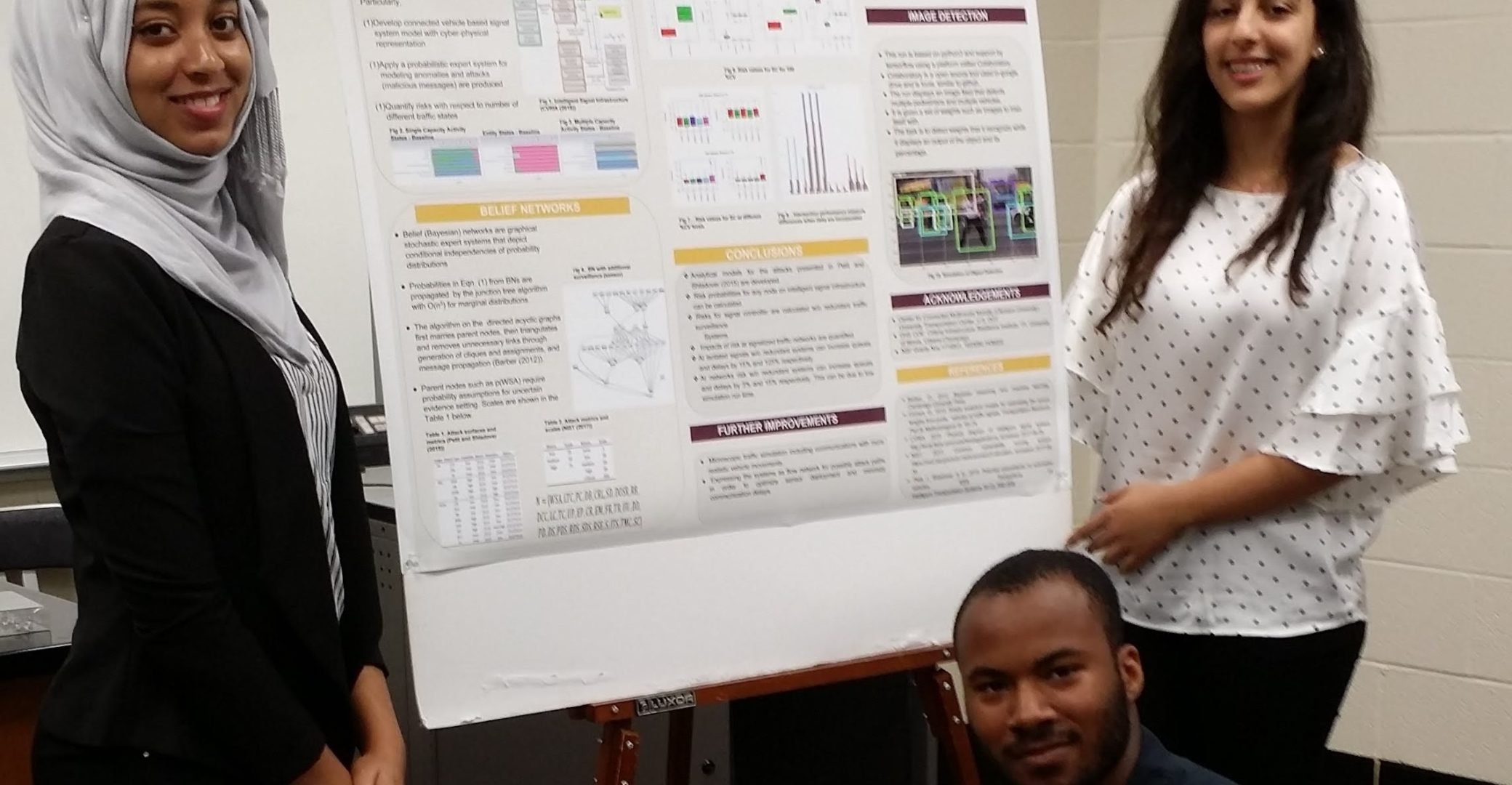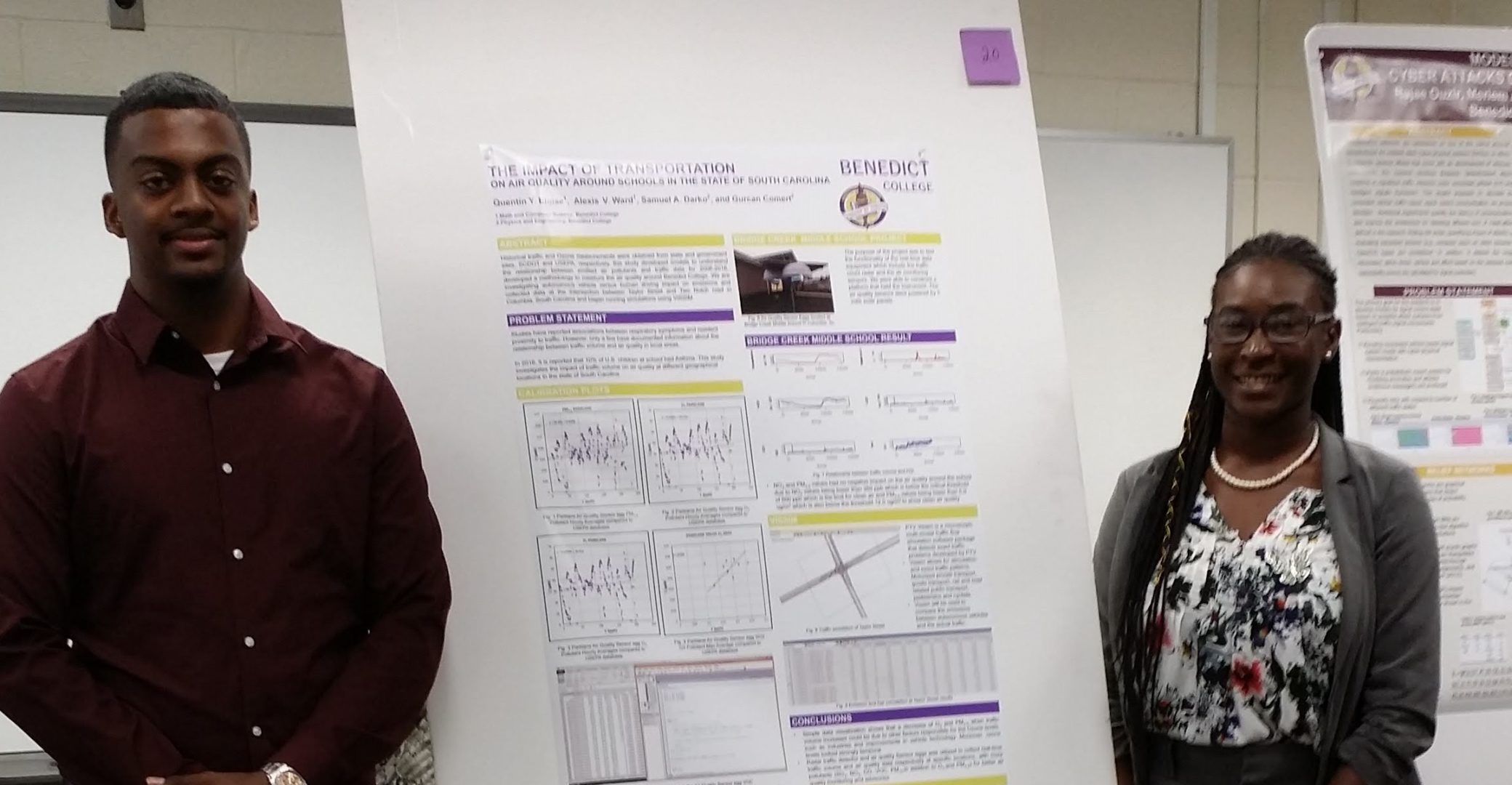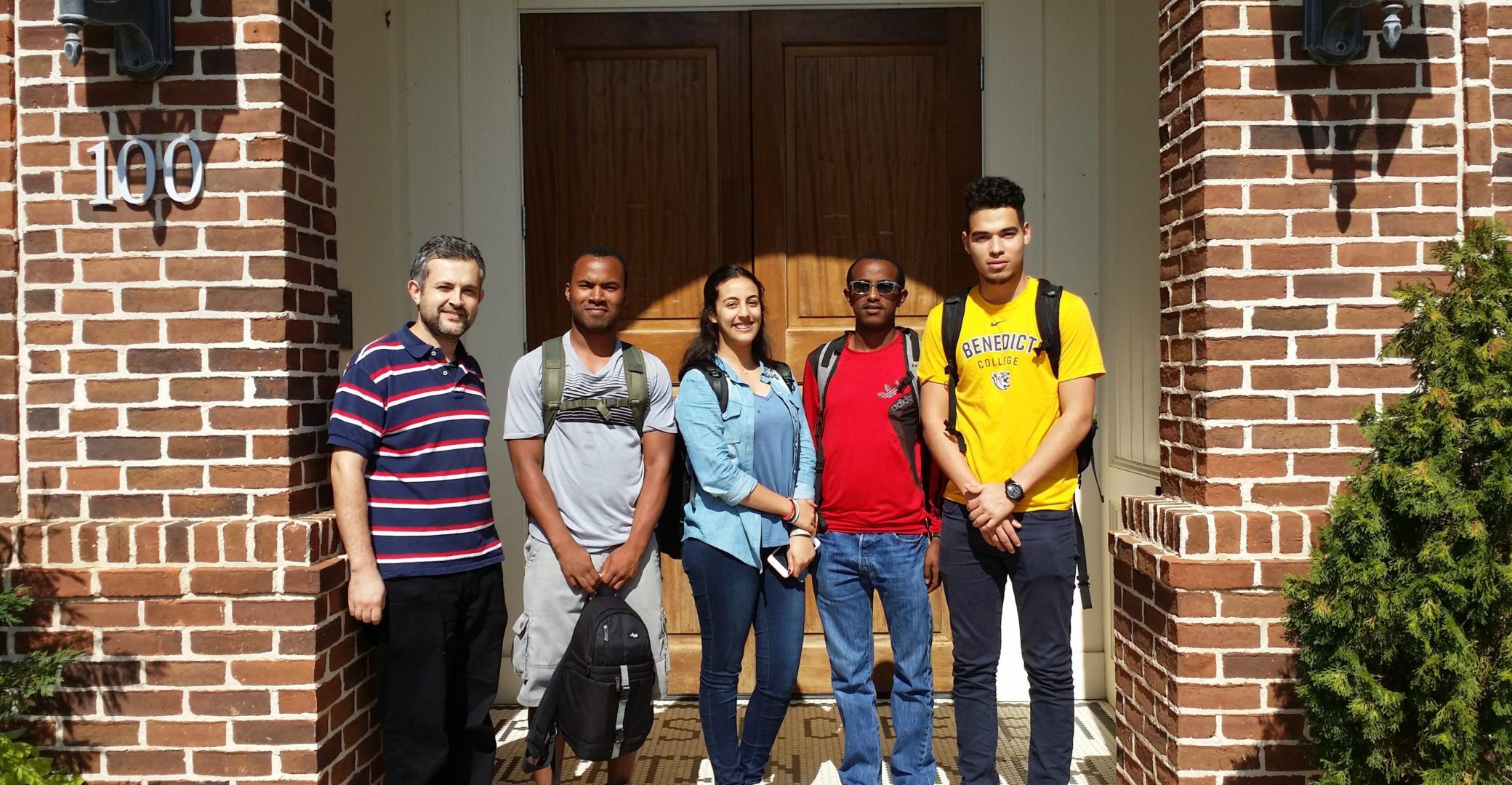Undergraduate Activities
C2M2 brings together the most prominent higher education institutions in South Carolina and experts from a multitude of disciplines: civil engineering, computer science, automotive engineering, industrial engineering, city planning, and policy analysis. The Center has a strategic advantage in that it includes access to nearly the entire student population in South Carolina. Given the facilities, resources, and expertise at each institution, the Center is positioned to develop unique tracks within existing programs and create new programs for those who wish to work in transportation whose major is not necessarily in engineering. Our affiliated institutions each bring a different focus to our Center and expand the breadth of research that undergraduate students are exposed to, giving them a chance to gain hands-on experience with research and providing an avenue to recruit fresh, young students into our affiliated graduate programs. In the past year, our researchers have taught 24 undergraduate courses throughout our five schools, and 17 students worked with Center funded researchers on transportation research.
Clemson University: Clemson University is classified as a doctoral university with the “Highest Research Activity” by the Carnegie Foundation. Its Glenn Department of Civil Engineering offers B.S., M.S., and Ph.D. degrees in civil engineering with a specialization in transportation systems. The department has 29 faculty members, with eight specializing in transportation. The department also provides undergraduates with an opportunity to focus on transportation through elective courses. The department graduates 20 students with MSCE or Ph.D. degrees per year. In addition, the City and Regional Planning Program offer M.A.s to students in transportation planning.
Discovery Night
Each Fall and Spring Semester, the College of Engineering, Computing and Applied Sciences hosts Engineering Week. As part of this week, each department holds a Discovery Night for undergraduate students to meet faculty, staff, and current students and explore programs and research opportunities that are offered. C2M2 participates in these events each semester, giving demonstrations of ongoing work in our Transportation Cyber-Physical Systems Lab, some of our Connected and Automated Vehicle research, and other ongoing funded projects.
Creative Inquiry: New Ideas for Making Driverless Vehicles Better
In Spring 2020 and again in 2021, the Center for Connected Multimodal Mobility (C2M2) offered a multidisciplinary creative inquiry course titled “New Ideas for Making Driverless Vehicles Better.” Driverless vehicles use advanced in-vehicle and transportation infrastructure sensors and electronic controllers, wired and wireless communication (vehicle-to-everything (V2X)), human-machine interfaces, data management infrastructure, and advanced analytics tools to enable the safe and secure longitudinal and lateral movements of autonomous vehicles. The creative inquiry course Mashrur “Ronnie” Chowdhury, Ph.D., the Eugene Douglas Mays Professor of Transportation, and Mizanur Rahman, Ph.D., provided students with a comprehensive overview of concepts hands-on experience related to driverless vehicles. With the goal to make them safer, more secure, and more efficient with autonomous vehicle technology. In the first half of the course, the students developed a basic understanding of the different components of a driverless vehicle and a conceptual understanding of driverless vehicles’ safety, security, and operational efficiency. They also developed a 1/10th sized driverless vehicle in the Transportation Cyber-Physical Systems Lab. In the second half of the course, students developed and designed a driverless vehicle in a simulated software platform and finished with each student developing a driverless vehicle application as a part of their course project. Nine students from different departments at Clemson University completed this course.
University of South Carolina: USC is recognized as the state’s most productive research institution by the Carnegie Foundation for the Advancement of Teaching, which placed USC on an elite list of universities with “very high research activity.” The Department of Civil and Environmental Engineering offers four degrees (B.S., M.S., ME, Center for Connected Multimodal Mobility (C2M2) UTC Tier 1 Proposal
and Ph.D.), all in Civil Engineering. The department currently has 18 faculty members, approximately 300 undergraduates, and 80 graduate students.
South Carolina State University: SCSU offers an M.S. in Transportation (MST), which includes multidisciplinary coursework and experiential learning that emphasizes the theme of the James E. Clyburn University Transportation Center: “Building Professional Capacity in Intermodal Transportation.” Over the past five years, an average of 6 students has graduated annually with an MST degree. MST students choose one of the following tracks: Transportation Planning, Business Management, Intelligent Transportation Systems, and Multi-Modal Transportation.
The Citadel – The Military University of South Carolina: The Citadel’s Civil and Environmental Engineering Department offers a broad-based curriculum at both the B.S. and graduate levels, providing students with an appropriate background for entering professional practice. The institution offers an ABET-accredited B.S. in Civil Engineering. Also, the M.S. in Project Management (MSPM) provides students with advanced instruction focusing on organizational effectiveness, principled leadership, innovative analytical procedures, and solutions to emerging engineering resource issues.
Benedict College: B.C.’s Department of Physics offers a B.S. degree in Transportation Engineering and Logistics Studies. This program was designed in collaboration with governmental agencies and transportation industry partners. The program offers courses in traffic engineering, transportation planning, traffic flow theory, highway design, Intelligent Transportation Systems, algorithm design, data structures, optimizations, hazardous materials, air pollution control, GIS, applied probability, and statistical methods under the transportation engineering track. The logistics studies track offers urban economics, supply chain management, advanced logistics, and production.
CSC 338
Researchers from C2M2, as a part of the Center’s technology transfer activities, will introduce the fundamentals of Quantum Artificial Intelligence (A.I.) to the students of Benedict College. In particular, the researchers will focus on the application of quantum A.I. in solving cybersecurity challenges. Dr. Mashrur ‘Ronnie’ Chowdhury will be a co-instructor for the Quantum A.I. course, which is a part of the CSC 338 course offered spring of 2021 by the Computer Science, Physics, and Engineering Department of Benedict College. These four-week-long quantum A.I. modules will be a part of the semester-long course offered by Dr. Gurcan Comert (C2M2 Associate Director). C2M2 researchers will introduce different modules related to Quantum A.I., which will help students design, develop and experiment with different quantum A.I. models. Students will conduct hands-on exercises and a final project related to transportation cybersecurity based on the knowledge gained through the course. The newly established C2M2 Quantum Artificial Intelligence Lab led by Benedict College will also support this course.
Graduate Activities
Similar to our track for undergraduate students, masters and doctoral students at C2M2 institutions will have the opportunity to specialize in Connected Multimodal Mobility (CMM). CMM-track courses will enhance student learning through “creative inquiry.” This pedagogy includes intensive, discovery-oriented approaches to learning in which undergraduates and graduate students are given meaningful research experiences that promote reasoning and critical thinking skills, ethical judgment, and a deep understanding of scientific research methods. The curriculum will be similar to the undergraduate track because many courses will be listed at undergraduate and graduate levels. Because the mission of this proposed Center is highly interdisciplinary, Ph.D. committees for all students involved in the project will be formed jointly between the two Ph.D. granting institutions. Furthermore, committee members will be from diverse educational backgrounds in relation to the main Ph.D. committee (for example, three members from Civil and Environmental Engineering, one from Statistics, and one from Computer Science). Highly relevant and interdisciplinary research will be required for all PhDs granted through this Center. This will be assured through the involvement of the Academic Advisory and Industrial Advisory boards. M.S. students funded through the Center will be encouraged to contribute to the development of education to enable technology transfer. Both Clemson University and the University of South Carolina are currently offering this program. This summer, our Center saw our first funded students graduate with their advanced degrees in these multidisciplinary areas.
CE 8930 Autonomous Vehicle Systems
Autonomous Vehicle Systems (AVS) use advanced in-vehicle and transportation infrastructure sensors and electronic controllers, wired and wireless communication (vehicle-to-everything (V2X)), human-machine interfaces, data management infrastructure, and advanced data analytics tools to enable the safe and secure longitudinal and lateral movements of autonomous vehicles. In terms of both safety and efficiency, a substantially improved surface transportation system is the result. Taught by Dr. Mashrur “Ronnie” Chowdhury, the Eugene Douglas Mays Professor of Transportation, this course will provide students with a comprehensive overview of concepts and hands-on experience in various AVS component designs, operations principles, and evaluation tools at different levels of vehicle automation.
